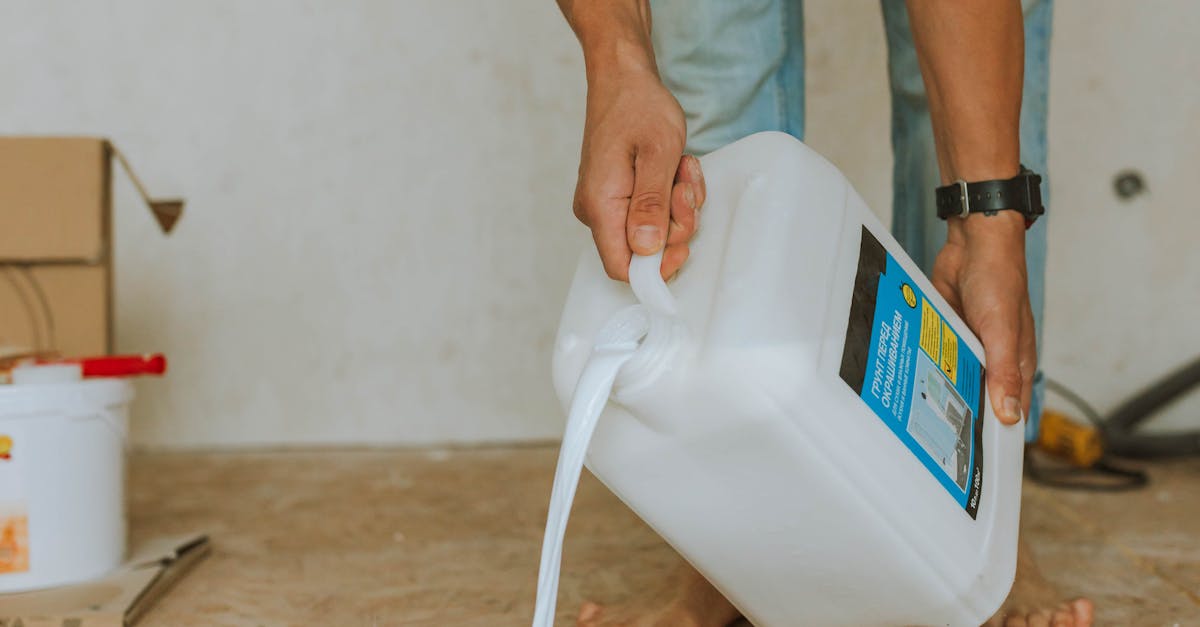
Hidden Costs to Consider
When planning a floor leveling project, it's essential to recognize the hidden costs that may arise during the process. While initial estimates often focus on the materials and labor, additional expenses can emerge unexpectedly, impacting the overall budget. Factors such as preparing the subfloor, addressing water damage, or dealing with structural issues can quickly add to the final cost. Homeowners must consider these potential expenses to avoid being caught off guard as the project unfolds.
Additionally, permits and inspections may be necessary for floor leveling in certain areas, contributing further to the overall expenses. A thorough assessment of the existing flooring condition can help identify any underlying issues that require attention before the leveling process begins. By anticipating these hidden costs, individuals can better prepare financially and ensure a smoother experience throughout the project.
Additional Expenses Beyond Base Pricing
When budgeting for a floor leveling project, it's essential to consider additional expenses that may arise beyond the base pricing. Factors like the condition of the current flooring can significantly impact costs. If existing floors are uneven due to structural issues or water damage, repairs may be necessary before the leveling process begins. This could involve removing old flooring, addressing underlying problems, or reinforcing joists, all of which can add to the overall expenditure.
Another potential cost factor is the type of materials used for the leveling. Some methods, such as self-leveling compounds, may come with varying price tags depending on quality and brand. Also, if your project requires specialized equipment or expertise, labor costs may increase accordingly. Understanding these additional expenses ensures a more accurate estimate and minimizes the risk of unexpected financial strain during the floor leveling project.
Estimating Project Timeframe
When it comes to estimating the timeframe for floor leveling, several factors come into play. The size of the area requiring leveling significantly impacts the duration of the project. A small room might only take a few hours to complete, while larger spaces, such as open floor plans, can require multiple days. Additionally, the complexity of the existing floor structure influences the time needed for leveling. Uneven floors with underlying issues such as moisture or structural damage may necessitate extra attention and repairs before the leveling process can begin.
Preparation and cure time also contribute to the overall project timeline. After applying the leveling compound, there is typically a resting period during which the material needs to set properly. This curing time can vary based on the product used and environmental conditions in the space, such as temperature and humidity. Proper planning will help ensure that the floor leveling process runs smoothly and remains within your desired timeframe.
How Time Affects Overall Cost
The time required for a floor leveling project can significantly affect overall costs. Complex layouts or extensive damage may increase labor hours, leading to higher expenses. Additionally, if the project drags on due to unforeseen issues, contractors will adjust their fees to accommodate increased time on site.
A thorough understanding of the timeline helps homeowners budget accordingly. It's wise to factor in potential delays caused by weather, material availability, or contractor scheduling. By anticipating these variables, one can better prepare for the financial implications of a lengthy floor leveling process.
Choosing the Right Contractor
Choosing the right contractor for your floor leveling project is crucial to achieving a high-quality outcome. Start by researching local contractors who specialize in floor leveling. Look for online reviews and testimonials to gain insight into their reputation. Assess their previous work, focusing on projects similar to yours. Licenses and insurance also play a significant role; a qualified contractor should be able to provide proof of both to ensure protection for you and your property.
Once you have a shortlist of potential contractors, prepare a list of questions to gauge their experience and approach. Inquire about their specific experience with floor leveling, including the methods and materials they typically use. Getting detailed estimates is important. Ask about the project timeline, potential disruptions, and how they handle unexpected challenges. A transparent dialogue can help you feel more confident in your choice and ensure the contractor aligns with your expectations.
Questions to Ask Before Hiring
When hiring a contractor for your floor leveling project, it's crucial to ask about their experience and expertise in this specific type of work. Inquire how many similar projects they have completed and whether they have any references you can contact. Understanding their familiarity with different flooring materials and types of leveling techniques can provide insight into their capability.
Additionally, discuss their process for assessing the current condition of your floors. A reputable contractor should conduct a thorough inspection before providing a quote. Ask about the methods they recommend for floor leveling and any necessary preparations. This will help you gauge not only their professionalism but also their commitment to delivering quality results for your project.
FAQS
What factors influence the cost of leveling a floor?
The cost of leveling a floor can be influenced by several factors, including the size of the area, the type of flooring material, the method of leveling used, and any necessary additional repairs or treatments.
Are there any hidden costs I should be aware of?
Yes, hidden costs can include expenses for floor preparation, disposal of old materials, potential plumbing or electrical adjustments, and finishing touches like new flooring or baseboards.
How long does it typically take to level a floor?
The timeframe for leveling a floor can vary widely depending on the project's complexity, but most jobs can take anywhere from a few hours to several days.
How can I choose the right contractor for leveling my floor?
Look for contractors with experience in floor leveling, check their references, read reviews, and ask for detailed quotes. It's also important to ensure they are licensed and insured.
What questions should I ask a contractor before hiring them?
You should ask about their experience with floor leveling, the methods they use, estimated completion time, warranty offered, and how they handle unexpected issues or costs that may arise during the project.
